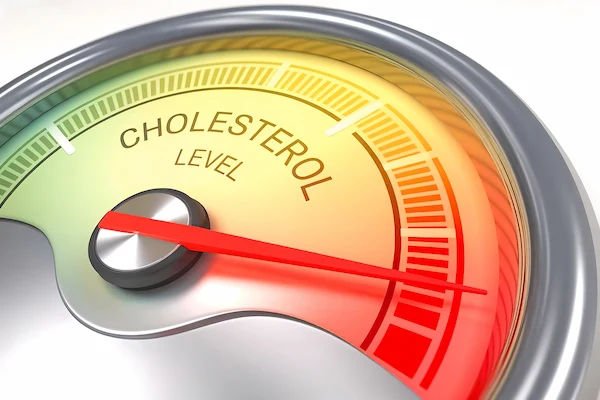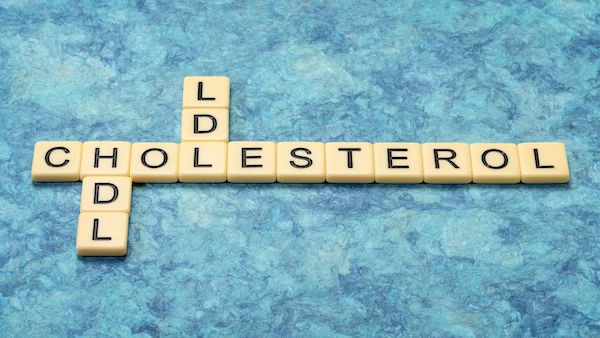Cholesterol Levels and Age Considerations
Understand how cholesterol levels change with age, including the symptoms and causes of high cholesterol. Discover tips to manage and maintain healthy cholesterol levels effectively.


Introduction
Cholesterol is a waxy, fat-like substance found in your blood. While your body needs cholesterol to build healthy cells, too much of it can increase your risk of heart disease. Cholesterol levels tend to change with age, making it important to monitor and manage them as you grow older.
In this article, we’ll discuss what cholesterol is, how age affects it, and simple ways to keep it under control for a healthier heart.
Understanding Cholesterol
Cholesterol travels through your bloodstream in two main forms:
1. Low-Density Lipoprotein (LDL) – "Bad" Cholesterol
- High LDL levels can lead to plaque buildup in arteries, increasing the risk of heart disease and stroke.
2. High-Density Lipoprotein (HDL) – "Good" Cholesterol
- HDL helps remove LDL from the bloodstream, protecting your heart.
Your total cholesterol level is a combination of LDL, HDL, and triglycerides (another type of fat in the blood).
Consult a Top Heart Specialist for the best advice
How Age Affects Cholesterol Levels
Cholesterol levels naturally change as we age due to factors like metabolism, diet, and physical activity. Here’s what to expect at different life stages:
1. Children and Young Adults
- Cholesterol levels are usually lower in childhood.
- Unhealthy eating habits (junk food, sugary drinks) can lead to early high cholesterol.
- Family history of high cholesterol can also play a role.
2. Adults (30-50 Years)
- Metabolism slows down, making weight management harder.
- LDL levels may rise due to poor diet, stress, and inactivity.
- Regular check-ups become essential to monitor cholesterol.
3. Older Adults (50+ Years)
- HDL levels may drop, while LDL may increase.
- Hormonal changes (especially in women after menopause) can affect cholesterol.
- Higher risk of heart disease if cholesterol is not controlled.
Symptoms of High Cholesterol
High cholesterol often has no symptoms, which is why it’s called a "silent" condition. Many people only discover they have high cholesterol after a blood test or a heart-related problem.
Warning signs in severe cases may include:
- Chest pain (angina)
- Fatty deposits on the skin (xanthomas)
- Stroke or heart attack symptoms
Since symptoms are rare, regular cholesterol checks are crucial, especially after age 20.
Causes of High Cholesterol
Several factors contribute to high cholesterol, including:
- Unhealthy Diet – Eating too much saturated fat (fried foods, red meat, full-fat dairy) and trans fats (processed snacks).
- Lack of Exercise – Physical inactivity lowers HDL (good cholesterol).
- Smoking & Alcohol – Damages blood vessels and lowers HDL.
- Obesity – Excess weight increases LDL and triglycerides.
- Genetics – Some people inherit high cholesterol (familial hypercholesterolemia).
- Age & Gender – Cholesterol rises with age; women’s LDL often increases after menopause.
How to Manage Cholesterol Levels
The good news is that cholesterol can be managed with simple lifestyle changes:
1. Eat a Heart-Healthy Diet
- Choose healthy fats – Avocados, nuts, olive oil, and fatty fish (salmon, mackerel).
- Increase fibre – Oats, beans, fruits, and vegetables help lower LDL.
- Avoid processed foods – Limit fast food, pastries, and sugary snacks.
2. Stay Active
- Aim for 30 minutes of exercise (walking, cycling, swimming) most days.
- Even small changes like taking the stairs help!
3. Maintain a Healthy Weight
- Losing just 5-10% of body weight can improve cholesterol levels.
4. Quit Smoking & Limit Alcohol
- Smoking lowers HDL; quitting improves heart health.
- Alcohol in moderation (1 drink/day for women, 2 for men).
5. Get Regular Check-ups
- Adults 20+ years should test cholesterol every 4-6 years.
- Those with risk factors (diabetes, family history) may need more frequent tests.
When to See a Doctor
If lifestyle changes aren’t enough, your doctor may prescribe medications like statins to control cholesterol. Consult a doctor if:
- Your cholesterol levels are high.
- You have a family history of heart disease.
- You experience chest pain or other heart-related symptoms.
Final Thoughts
Cholesterol management is a lifelong commitment, especially as we age. By making smart food choices, staying active, and getting regular check-ups, you can keep your heart healthy and reduce the risk of complications.
Consult a Top Heart Specialist for the best advice
Consult a Top Heart Specialist for the best advice

Dr. Sumanta Chatterjee
Cardiologist
12 Years • MBBS,MD General Medicine,DM Cardiology
Kolkata
HealthYou Speciality Clinic & Diagnostics., Kolkata
(25+ Patients)

Dr. Anand Ravi
General Physician
2 Years • MBBS
Bengaluru
PRESTIGE SHANTHINIKETAN - SOCIETY CLINIC, Bengaluru

Dr. Sumanjita Bora
Cardiologist
9 Years • MBBS, PGDCC
Bengaluru
Apollo Clinic, Sarjapur Road, Bengaluru
Dr. Mahendranath Subramani Prasad
Cardiologist
16 Years • MBBS,MS ,DNB, M.Ch. Cardiovascular and Thoracic Surgery(Cardiology)
Bengaluru
Apollo Clinic, Sarjapur Road, Bengaluru

Dr. Zulkarnain
General Physician
2 Years • MBBS, PGDM, FFM
Bengaluru
PRESTIGE SHANTHINIKETAN - SOCIETY CLINIC, Bengaluru
Consult a Top Heart Specialist for the best advice

Dr. Sumanta Chatterjee
Cardiologist
12 Years • MBBS,MD General Medicine,DM Cardiology
Kolkata
HealthYou Speciality Clinic & Diagnostics., Kolkata
(25+ Patients)

Dr. Anand Ravi
General Physician
2 Years • MBBS
Bengaluru
PRESTIGE SHANTHINIKETAN - SOCIETY CLINIC, Bengaluru

Dr. Sumanjita Bora
Cardiologist
9 Years • MBBS, PGDCC
Bengaluru
Apollo Clinic, Sarjapur Road, Bengaluru
Dr. Mahendranath Subramani Prasad
Cardiologist
16 Years • MBBS,MS ,DNB, M.Ch. Cardiovascular and Thoracic Surgery(Cardiology)
Bengaluru
Apollo Clinic, Sarjapur Road, Bengaluru

Dr. Zulkarnain
General Physician
2 Years • MBBS, PGDM, FFM
Bengaluru
PRESTIGE SHANTHINIKETAN - SOCIETY CLINIC, Bengaluru


.webp)
